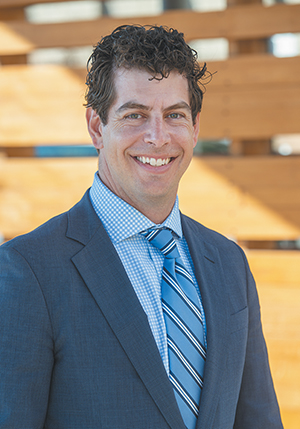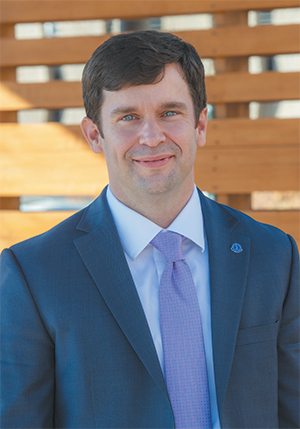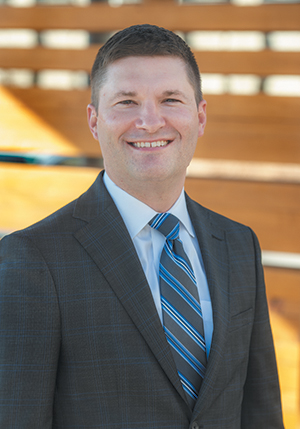Q & A with a New Class of Memphis Healthcare Leaders
Leadership requires the courage to make decisions that will benefit the next generation...
- Alan Autry
Over the past few years, new leaders have risen to the helm of some very important healthcare organizations in Memphis bringing with it their opportunity to shine. And shine they have done.
Most recently, they have led their organizations through one of the most challenging years in healthcare history. Needless to say, their management skills have been tested. And so far, they are passing with flying colors.
Memphis Medical News recently caught up with these four dynamic leaders and posed some questions about their experience so far. Enjoy.
What has been your experience transitioning your team and staff to your leadership?
Cummins: The Memphis Medical Society went from being an organization with a very singular focus (physician advocacy) to one that now supports and advocates for the entire healthcare system through physician leadership. More specifically, we are assembling the talents of 2,300 physicians, those who they lead, and the entities where they lead to improve the health of our community. When you expand a mission in that way, it brings change and opportunity. I think our staff embraces the opportunity to take on new challenges, particularly when they see there is a community benefit.
Parsons: Our team at Baptist Memorial Hospital-Memphis has been through a lot this past year. Just a few weeks before I started, the first patient was hospitalized with COVID-19. In addition to learning a new CEO, the team has continued to manage through the pandemic, often creating the playbook as we go. I am very proud of our team - their flexibility and adaptability to rapidly changing information, which continues even today. It has been an unprecedented transition and I'm honored to work with such a dedicated team.
 |
|
Eric Schnapp, CEO Mays & Schnapp Neurospine Center "My motto in 2020 was 'Pivot,' as that is what we constantly found ourselves doing." |
Schnapp: Over several decades, Dr. Moacir Schnapp and Dr. Kit Mays differentiated their care by focusing on the uniqueness of the patient and developing an individualized treatment plan. Guided by that patient philosophy, Mays & Schnapp grew organically, trusted by the community.
I didn't join Mays & Schnapp to completely turn it around; I joined a 40-year-old team that specialized in pain management before the term was even recognized...But one that didn't have a roadmap for the next phase: how to meet the community's growing demand for its care without sacrificing that very same care.
When I joined, I worked hard to make it clear to the team that my purpose was not to over-administrate but to help the practice reach its potential. I needed to be careful to take a measured approach to preserve the values that had made the practice successful while still making the changes, some dramatic, that we needed. I don't know that I would have been able to appreciate the extent and subtlety of Mays & Schnapp's treatment philosophy without my exposure to it before, which guides me in how we onboard providers and staff. No matter how seasoned the physician, PA, or NP, each one spends an extensive period one-on-one with the other providers learning the practice's philosophy, it's nuances, and how it came to be. Only once that philosophy is understood and adopted, does that provider even get the opportunity to apply it to our patients.
I regularly feel it is my responsibility to remind the team that I work for them just as much as they work for the organization. We demand a lot from our staff, and I need them to know I'm not deaf to how we meet those demands or the impact it has on them. If Mays & Schnapp is to reach our goals, I'm going to do everything I can to help it get there.
Tacker: It has been a wonderful experience, very smooth. I have worked in healthcare in Memphis for over 25 years, so I already had connections with several of our leaders and physicians. I have to say that coming into an organization during a pandemic is not the easiest way to transition, but it forced us to come together quickly, which was good. I am very pleased with the dynamics of our leadership team.
How has COVID-19 affected your organization, and how much of your time has been allocated to ensure the safety of your staff and patients?
Cummins: In our office, we closed the doors on day one of the pandemic allowing visitors for only a few exceptions. Across the healthcare community, we saw this massive PPE crisis, which is hopefully behind us. That is definitely tied to patient and staff safety. We had clinics calling us with zero inventory and hospitals with critical levels of inventory. There were also opportunity-seeking vendors who emerged to take a capitalist approach to supplying PPE. To each their own, but we chose a different route because our mission allows us to do so. We worked with a variety of industry partners, some even outside of healthcare, to procure the lowest cost (sometimes free) PPE that we could distribute to the community.
Parsons: The safety of our patients and our staff is always our priority. We have worked tirelessly to develop systems of care - from screening, testing, visitation, and procedures, to be prepared for COVID patients as well as continuing other important care provided at our hospital. It has dominated the past year, without doubt.
Schnapp: For months, the bulk of my time was spent ensuring the safety of the staff, patients, and practice, because they are intertwined: we all rely on each other.
One of the challenges of the pandemic has been the amount and speed of information coming out of every entity: agencies, organizations, state and federal governments. Simply weeding through information was a monumental daily effort, not to mention resolving conflicting essential material. For months, every day was spent figuring out just what we were supposed to do to protect our staff and patients long before we could even begin doing it. We spent considerable time and resources hedging our bets: ordering extra supplies, setting up every worker for teleworking, implementing a new phone system so we could answer calls from anywhere.
Lockdowns and quarantines notwithstanding, patients with chronic conditions still needed their care addressed. Without continued physical, interventional, or medication treatment, many of our patients' conditions could worsen, impacting their function. For many, we serve as an integral part of their support circle. Once a pandemic was declared, within days we had researched, tested, trained, and deployed telemedicine to our patients to ensure we provided that continuity of care.
My motto in 2020 was "Pivot," as that is what we constantly found ourselves doing. From implementing new protocols, to remote working, to distancing in the office, to overhauling processes rescheduling, shuffling providers; we constantly shifted to accommodate what the pandemic threw at us. Our staff rose to the challenge, because as quickly as we learned of a new change, they implemented it without complaint and incredible attitudes. The culture at Mays & Schnapp has always been one where people look out for one another, and this has never been more clear than during the pandemic.
 |
|
Shannon Tacker, CEO University Clinical Health "UCH has developed a COVID-19 testing lab, in conjunction with the University of Tennessee." |
Tacker: COVID-19 has affected our organization significantly. Ensuring the safety of our patients, physicians and staff are top priority. There has been so much time spent rethinking how we work and how we provide care for our patients - safely. We have been creative and flexible this year in order to implement social distancing protocols and accommodate remote working arrangements which ensure that our staff can work safely and productively in spite of the barriers COVID presents. In addition, UCH has developed a COVID-19 testing lab in conjunction with the University of Tennessee. We have also partnered with the City of Memphis and Shelby County to manage their testing sites. I would have to say COVID-19 has been pretty consuming for us this year.
What is the stress-level of your team and staff in the COVID crisis environment, and what is your strategy to help them?
Cummins: Within our walls, we have always strived to maintain positivity despite any stressors, including COVID-19, that come our way. For physicians, we launched our Thrive initiative remotely in August. Thrive is a wellbeing initiative that seeks to support physicians who are experiencing symptoms of depression, burnout and other mental health challenges. Thrive's flagship offering is a confidential hotline, which physicians can access that connects them to a licensed psychologist. The psychologist's time is covered by our 501(c)(3) entity Memphis Medical Foundation. Future goals include in-person appointment offerings and expanded access to other healthcare providers.
 |
|
Clint Cummins, CEO/EVP Memphis Medical Society "Thrive is a wellbeing initiative that seeks to support physicians who are experiencing symptoms of depression, burnout and other mental health challenges." |
Parsons: We talk about the stress of our team and I'm proud that our team has done a good job looking out for each other during what has been a very stressful time. I firmly believe that we only get results through our people, so we're constantly looking for ways to support our teams. Sometimes it's big things like COVID Employee Assistance for finances or our EAP program for a counselor to talk to, but many times it can be small things like a thank you, rounding to check on them, or welcoming them into work.
Schnapp: After their and their families' health, everyone's next concern was whether they would still have a job. Between reading about massive layoffs in the community and furloughs of entire departments, we were faced with making bet-the-farm decisions with imperfect, ever-changing information.
We did not fire; we did not furlough. Instead, we made the decision to bet on our people, not knowing what was coming next or for how long it would last. Our staff needed to know that we were going to have their backs, because we knew they would be there for us when we needed it. Amidst the chaos, I could at least ensure that their jobs were not something over which they would stress. Early in the pandemic, before the FFCRA was even conceived, we gave every employee ten additional days of PTO, no matter the employee's role or tenure. We created opportunities for work across departments, such as ASC staff used to working in the OR were instead fielding front office calls. If an employee wanted to work, we did everything we could to make it happen. Laptops were ordered and onboarded, remote working capabilities were implemented, and staff was cross-trained; our IT costs skyrocketed.
Simply not knowing has been one of the biggest causes of stress from the pandemic: am I safe, how long will this last, will I still have health insurance? Since then, I try to provide as much predictability to our team's lives as I can.
Tacker: I think it varies by individual and circumstance. Generally, we have stayed very busy. With the development of the lab, as well as our management of the testing sites and ongoing patient care, we have been fortunate that most of our staff have continued to be able to work. I would be amiss if I didn't acknowledge that the team has worked very hard, and sometimes becomes tired/frustrated. It's just the world we live in currently. The key is to make sure everyone feels safe, supported and gets adequate time to recharge. It's a marathon, not a sprint. We just have to pace ourselves.
What is the biggest challenge you and your organization are facing in 2021?
Cummins: Every association's biggest challenge each year can be captured with the word relevance. Getting it, maintaining it, and growing it. For our members, particularly those in primary care and chronic disease, the biggest challenge will be catching the public up on preventive health screenings and treating the likely resurgence of diagnoses associated with delayed screenings. Decreasing reimbursements from CMS will be a major financial factor for practices.
Parsons: 2021 has started with the arrival of vaccines, which is a hopeful sign that 2021 will bring recovery from the pandemic. We will continue to encourage vaccination and assist in deploying vaccines for our city and region during much of this year and I'm excited that this is already underway. I think recovery will be a key theme and very important for Baptist-Memphis in the coming year.
Schnapp: The biggest challenge we face is continuing to meet the community's demand for our treatment philosophy as we simultaneously refine the patient experience. Our new Southaven location has performed better than expected, as it gave patients and physicians better access to our providers and treatments. The Mid-South community has trusted us for decades and continues to rely on us as we expand. We are experts in pain; we are where other physicians send their family.
Our providers utilize every effective tool available, using a multidisciplinary, individualized, patient-centered approach that incorporates not only medication but also interventional approaches, restorative therapies (like physical therapy), and behavioral therapies. Further, we continue to search for trusted new therapies to add to our toolbox. Just last year, Mays & Schnapp was selected as the only independent site in the country to implant the only FDA-approved temporary peripheral nerve stimulators.
Tacker: The healthcare landscape, locally and nationally, are evolving. Not only because of COVID but also because of changing partnership dynamics within the Memphis healthcare community. Strong strategic partnerships within the community are an essential part of our success, and so as we face the new year, it is of upmost importance that we deepen our existing community partnerships as well as develop new, mutually beneficial relationships which will allow UCH to expand in the Memphis market.
What are you most looking forward to in 2021?
Cummins: MedTemps, our staffing agency, experienced significant growth in 2020, and we have an opportunity to continue that as we have proven our ability to recruit and staff a wide variety of positions throughout healthcare. Secondly, we will be taking a more active role in public health - more to come on that effort as we seek to expand access to care in our county and throughout West Tennessee.
 |
|
Brad Parsons, CEO Baptist - Memphis "We will continue to encourage vaccination and assist in deploying vaccines for our city and region during much of this year." |
Parsons: I think I'm most looking forward to a return to normal human interaction. It is so important for the healing process and important to everything we do. Whether it is an in-person meeting, a smile without a mask, family visitation, or a simple touch from a caregiver, I think we all miss the human side of the care we provide and why we got into healthcare. I'm hopeful that we begin to see this again this year.
Schnapp: The pandemic stole from everyone the luxury of being able to plan ahead. I look forward to returning to some of the plans we put on hold last year and reevaluating them in the new normal. This year is our resurvey for our CARF accreditation. As the only one accredited in our field in the Mid-South, I'm looking forward to being able to focus our efforts on that intensive process. As difficult as it is to receive that accreditation, it is one we judge necessary to be a pain center of excellence, and it has helped us attract some of the best professionals in the field.
Tacker: Face to face meetings without masks, hugs and going out to eat.
If you could give one piece of advice to someone thinking about going into healthcare administration, what would that be?
Cummins: Working with physicians and all healthcare providers is a privilege. They save lives every day. While they are on-call for patients, we are on-call for them. Hone your time management skills as early as possible, because they will be put to the test. You will always be busy if you are talented and passionate about healthcare, so having tools and strategies in place to help you balance work, family, faith, and education will benefit you tremendously.
Parsons: It's an exciting, challenging, and rewarding career. I'm honored to get to serve and very proud to be on a team with incredible caregivers that do incredible work at Baptist-Memphis every day.
Schnapp: Make time to be with your staff--all of them, not just senior staff/management--without a specific agenda. We regularly rely on directors or managers for reports and news, but not everything important makes it all the way through the chain. I like to give our staff the opportunity to talk to me directly about anything on their minds, whether a task is giving them problems or the decorations they are preparing for their son's wedding. I'll learn about issues that could never be gleaned from a report or performance metrics. The time I spend with each employee and the information I learn from each of them is invaluable because I rely on them - all of them - being comfortable in telling me not what I want to hear, but what I need to hear.
Tacker: Always make the decision that is best for the patient, and everything else will fall in place.














